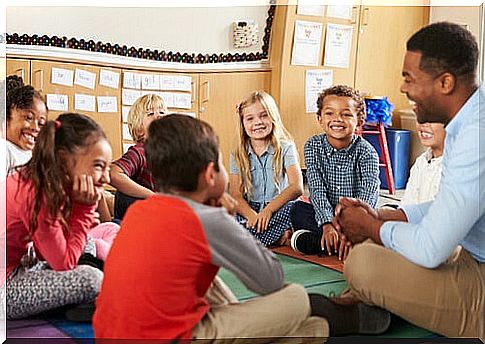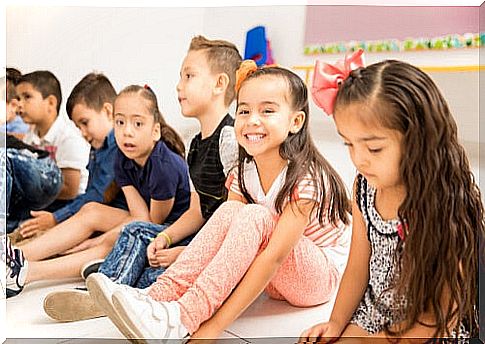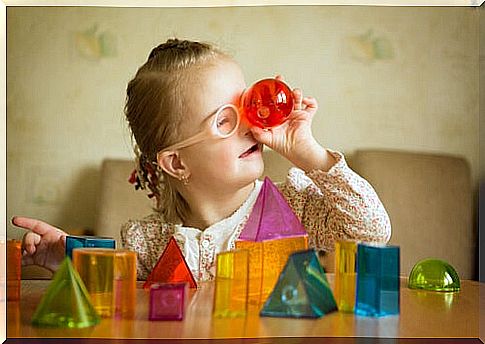Educate In Equality And Respect

We live in an increasingly globalized world. Technology and changes in lifestyles have made the borders of countries blur and that we are increasingly living in contact with people from different parts of the world. Educating in equality and respect becomes transcendental to reduce differences and conflicts.
This globalization, with all the positive aspects that it entails, also demands certain responsibilities on the part of communities. One of them is the need to educate its members in equality and respect.
The essential reason that makes this learning essential is the need to tolerate differences with others and live with them. In this sense, we refer to the dissimilarities in the following aspects:
- Ethnic.
- Policies.
- Cultural
- Religious.
- Socioeconomic.
Keys to educate in equality and respect
Delivering an education that emphasizes the relevance of equality and respect within a society and also between diverse communities can sound somewhat broad. Therefore, here we present some basic notions that will allow us to consider the most important aspects of this teaching.
1. Demonstrate with facts that intolerance is not the way
A very powerful tool to educate in equality and respect is to show the catastrophes that have occurred as a result of prejudice. The wars and cruel battles that humanity has gone through were based on political, religious and even ethnic differences.
Unfortunately, this continues to occur to this day. As the advanced and ever-developing society that we are, this is something we cannot allow. Future generations and what we instill in them are the first change we can make from our place.

2. It is necessary to eliminate stereotypes and prejudices
Just as the differences between men and women are increasingly drawn from collective thought, we must do the same with the stereotypes and prejudices they generate. Consequently, it is essential to teach children not to associate certain people with certain tastes, jobs, skills or defects.
Each being is different and has its peculiarities, preferences, beliefs and aptitudes. In no way can race, religion or any other factor that makes an individual delimit any of these qualities.
3. Take care of the content that children access
To educate in equality and respect, it is appropriate that we avoid children coming into contact with xenophobic and racist messages. Unfortunately, content like these abounds on the web, so it is vital that parents get involved in children’s use of technology.
If we don’t, we will be letting the little ones be influenced by malicious ideas that have little to do with the values that we try to promote in them.
4. Demonstrate the benefits of an integrated society
Many achievements in different areas of today’s society have been carried out by people of different characteristics. The great teams, both sports, scientific or work, include all their members in equal parts without making differences.
Therefore, it is very positive that you teach your child that everyone can make important contributions when pursuing a common goal. Similarly, you can show him role models from different races, religions, and cultures.

5. Exercise inclusion in your day to day
If we do not ‘lower’ these messages into daily practice, it will be difficult for children to incorporate and understand their true meaning. It is extremely beneficial, then, that group activities that include everyone are promoted in the school environment. This can be achieved with playful dynamics and also with films or books that promote tolerance.
Likewise, as parents, meeting spaces with other children can be promoted. In this way, in the field of sports practice, in music classes or in other types of extracurricular activities, the little ones will understand the value of each person and the knowledge that each of them can contribute for the benefit of all.
Ultimately, it is important to note that all the points mentioned above require the active participation of adults. How can we do it? From the fundamental weapon that we have for this: the example.
The boys constantly observe and learn from the older ones. So, if we show tolerant, understanding and inclusive attitudes for those who are or think different, we will be sowing something very important in minors.










